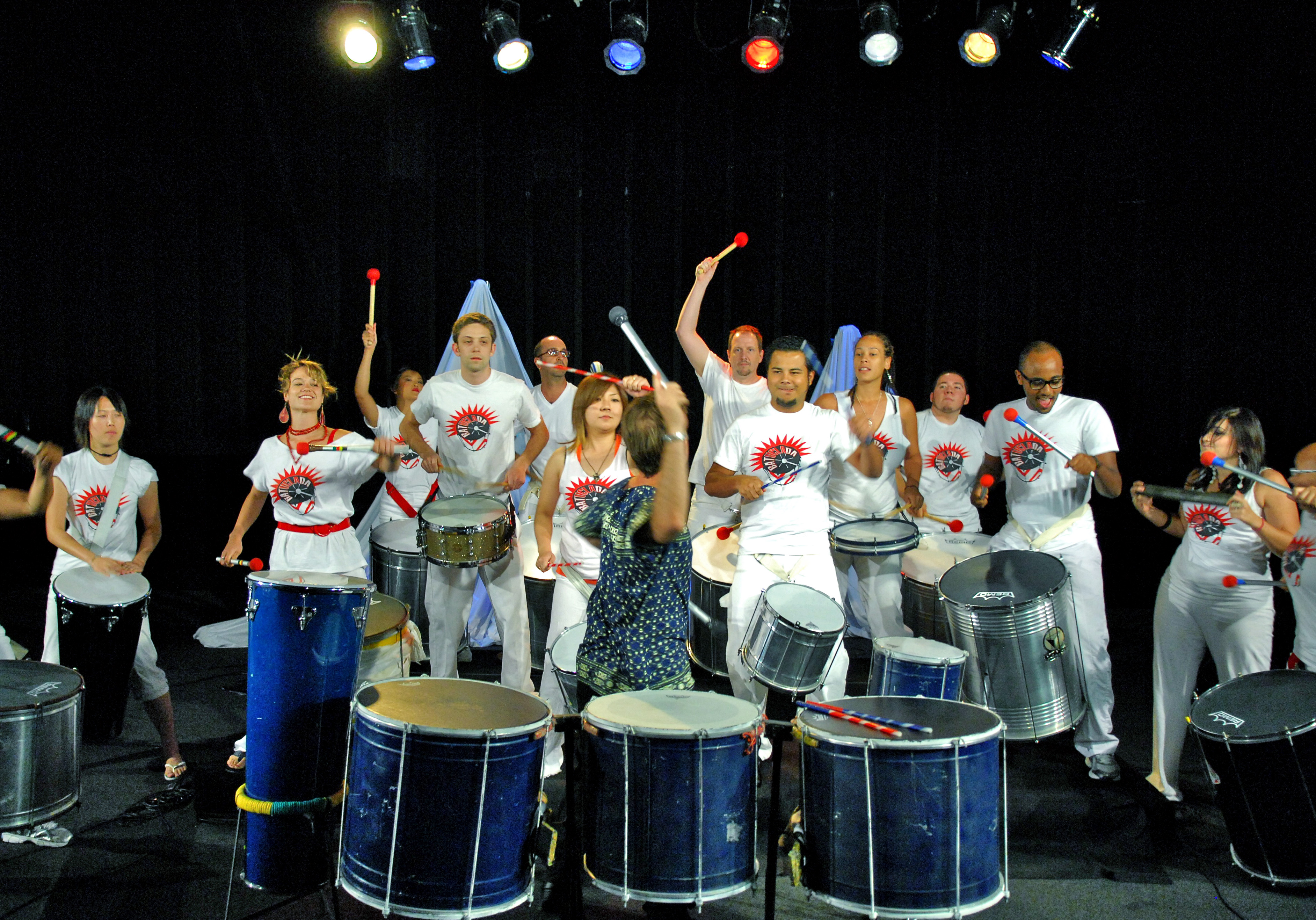Back in high school, Kirk Brundage’s jam band opened for the famous Brazilian percussionist Airto Moreira. From that moment on, Brundage was hooked on the upbeat music style.
After receiving his master of fine arts at the California Institute of the Arts and studying in Brazil for 12 years, 45-year-old Brundage now directs the Brazilian music ensemble BatUCLAda.
Today at 6 p.m., BatUCLAda and the Music and Dance of Ghana Ensemble will both perform as part of a Fowler Out Loud event.
BatUCLAda will perform five sacred songs traditionally sung in Yoruba, a Niger-Congo language, and four carnival songs traditionally sung in Portuguese, accompanied by singers and dancers. Dancers and instrumentalists alike have choreographed their own steps for the performance. The Music and Dance of Ghana Ensemble will perform two to three pieces along with dancers in a “call and response” style of percussion.
Both ensembles perform highly interactive music that encourages audience participation.
“A lot of our pieces are called “˜invitational style,’ where you’re invited to join, to participate, to celebrate, to enjoy, to let the music move you. … We definitely desire that response from the audience,” said Yeko Ladzekpo-Cole, the teaching assistant for the Music and Dance of Ghana Ensemble.
Her father, Kobla Ladzekpo, taught at the California Institute of the Arts for 40 years and now directs the Music and Dance of Ghana Ensemble.
Dorothy Soto, a third-year ethnomusicology student with a concentration in world music, will play the fundo, a bass drum instrument. Soto started her musical career on bass and guitar but said she always had an inclination toward percussion and finally got involved with drumming this year.
“What drew me to the ensemble was that it was highly energetic, and it just seemed like so much fun and a party,” Soto said. “Being Latina, I wanted to do something I could relate to in some facet.”
As a first-generation Cuban American, Soto said she connects to this richly cultural music after growing up listening to Cuban music.
“It is like Cuban coffee and black beans and rice, it is part of everyday (life),” Soto said.
In the same way, Ladzekpo-Cole, a first-generation African American from Ghana, said she hopes the audience learns from her cultural music.
“In Ghana alone you have 10 different ethnic tribes with different languages and with different dialects,” Ladzekpo-Cole said. “I would like people to … broaden their scope of African music and to not just generalize and think of it as one thing, or one style, or one type of drum.”
Not only do both of the women share a deep connection with these musical genres, but the Brazilian and Ghanaian genres themselves have a complex historical relationship. During the trans-Atlantic slave trade, Brazil, specifically areas such as Rio de Janeiro and Bahia, was one of the major areas slaves were taken to from places like the Bight of Benin and West-Central Africa. Though these two countries’ relationships started out of oppression, it gave way to the creation of musical genres such as samba-reggae and candomble. Brundage acknowledged the history within both of these cultural genres of music.
“It is a celebration of life. … The people that created this music had very big challenges that they did not allow to control them. Instead of being victims, they decided to be victorious and celebrate that,” Brundage said. “It is like winning your own struggles and the joy that that brings.”
